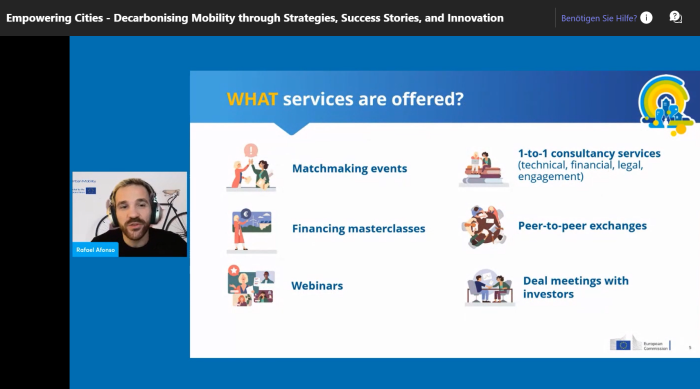
On 24 October, in an insightful webinar “Empowering Cities - Decarbonising Mobility through Strategies, Success Stories, and Innovation” hosted by the Smart Cities Marketplace, experts and city representatives came together to discuss innovative strategies for decarbonising urban mobility. The event featured presentations from various speakers, each shedding light on key aspects of sustainable transportation. The session was moderated by Rafael Afonso from EIT Urban Mobility, a Smart Cities Marketplace consortium member.
Stefano Borgato from TRT Trasporti e Territorio delved into the results of a comprehensive simulation study focused on sustainable mobility policies. He presented crucial indicators tailored to different city prototypes, emphasising the significant impact of policy measures on CO2 emissions, fatalities, and overall costs. Urging immediate action to meet 2030 targets, Borgato stressed the importance of contextualising policies to suit individual cities. They also highlighted the potential for more precise results through active stakeholder engagement.
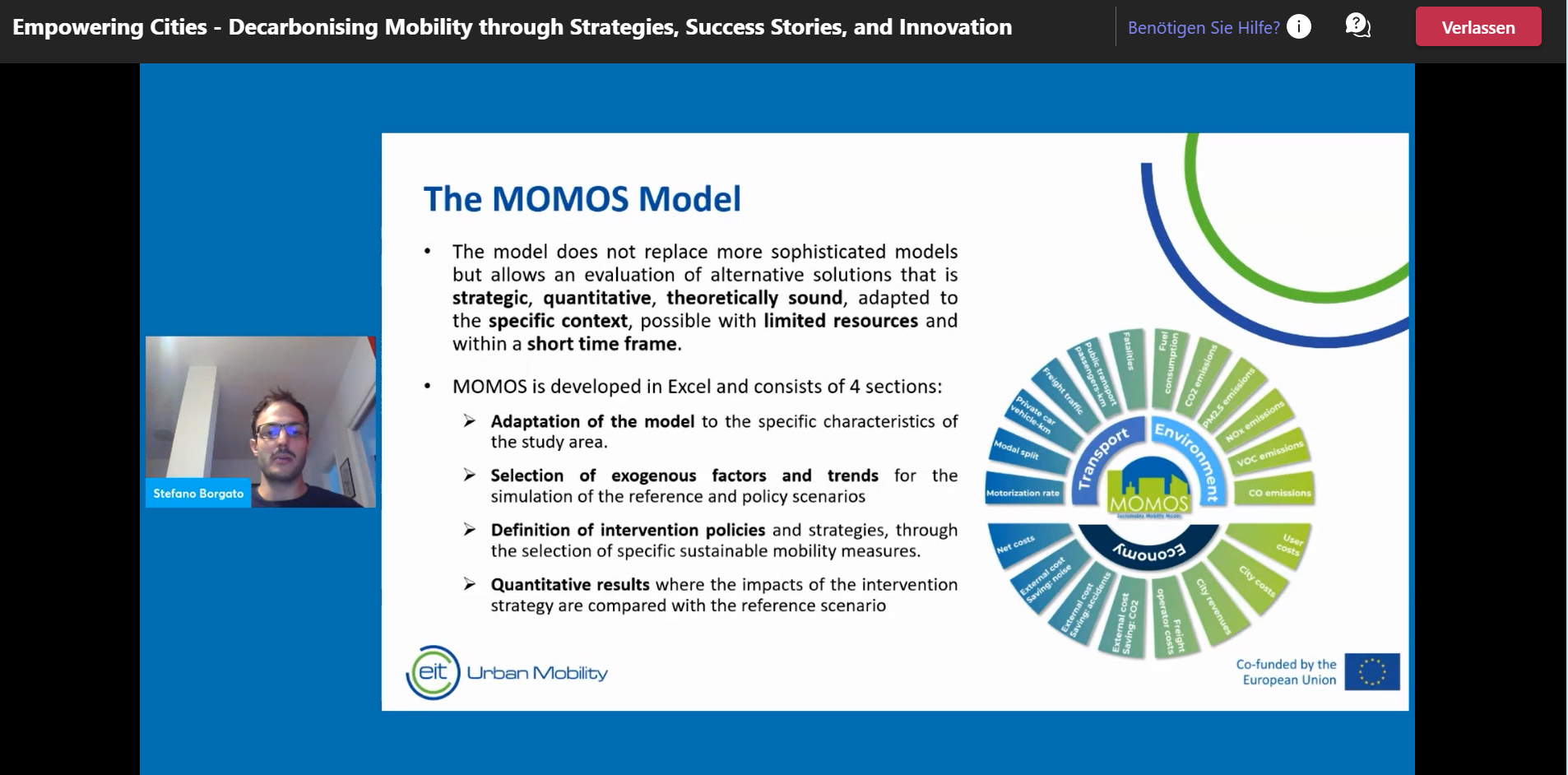
Anabel Camacho working for the Viladecans City Council provided a comprehensive overview of the city, located near Barcelona, with a population of 67,000. They outlined the city's strategic framework, including a 2030 strategy and ambitious ecological transition goals. The 2030 strategy describes nine strategic axes, with a dedicated focus on ecological transition to combat climate change. She emphasised the necessity for systemic transformation and local commitment. Viladecans, the pilot city for this agenda, boasts 10 strategic objectives and 131 actions, many of which actively promote sustainable mobility and environmental resilience.
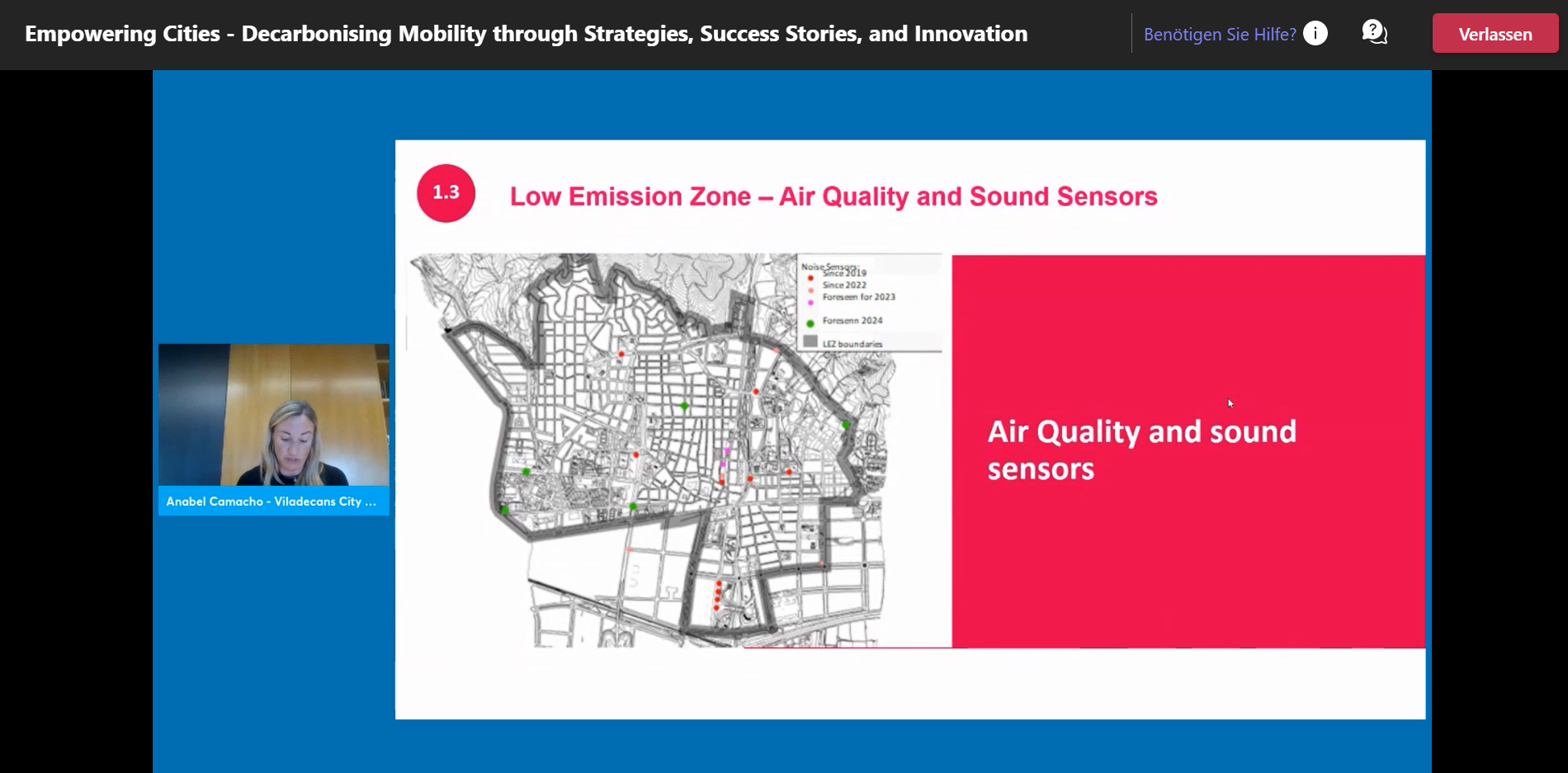
Tommaso Buso, Bankers without Boundaries, Smart Cities Marketplace consortium member, shed light on the key principles of financing smart urban mobility projects. He underlined the importance of integrating various policy areas and involving citizens from the outset. His discussion encompassed a range of steps, from establishing working structures to analysing mobility situations. Buso also touched on diverse sources of finance, including local revenues, pricing measures, and value-capture instruments. He highlighted the role of external financing options such as loans, bonds, and public-private partnerships while acknowledging that loans from organisations like the EIB may necessitate larger investment volumes. Collaboration and aggregation of projects among smaller cities were presented as viable options in such cases.
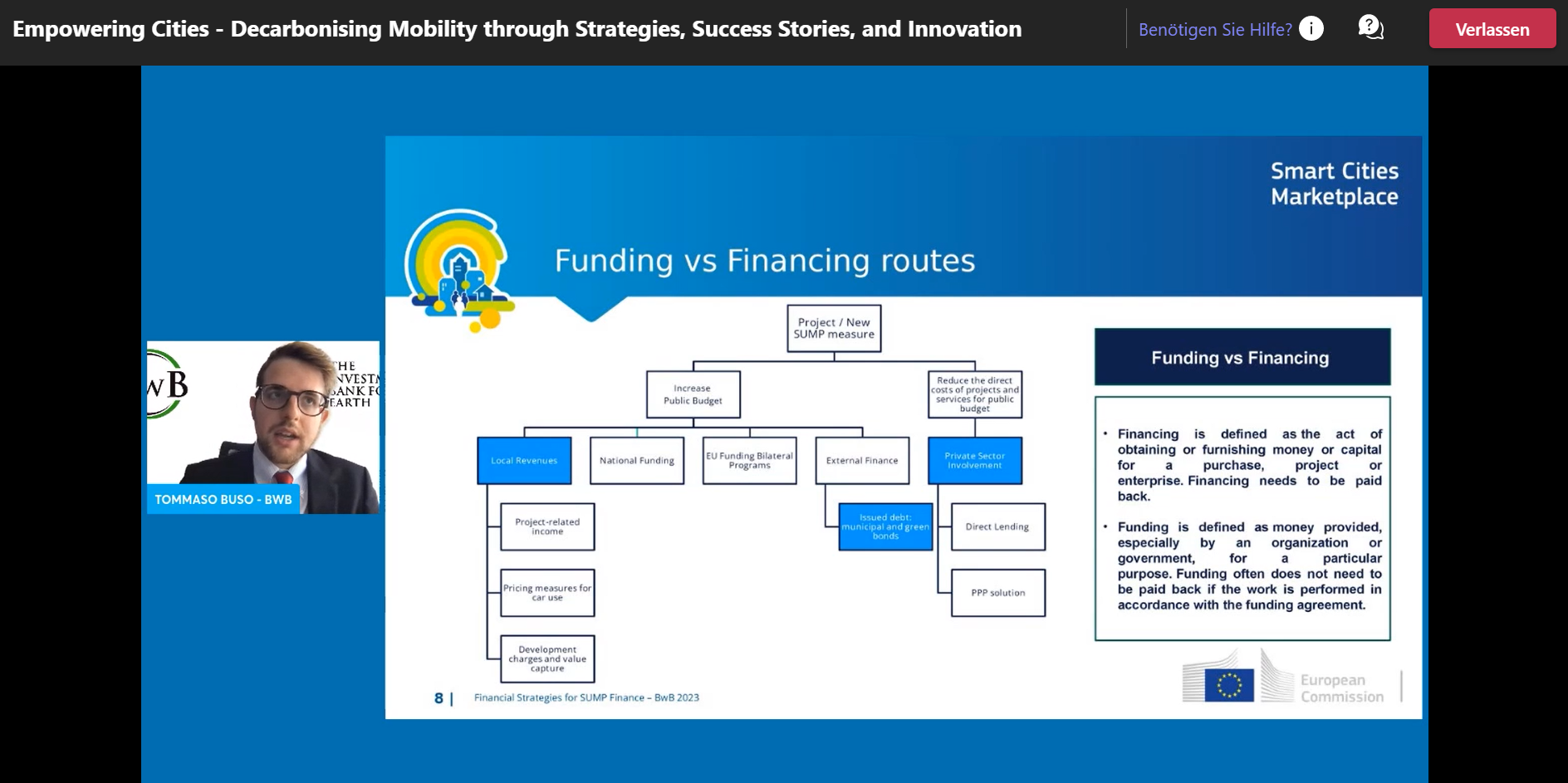
Anaïs Enrico from Karos Mobility introduced a carpooling platform designed to provide sustainable mobility solutions in both urban and rural areas. Emphasising the integration of local traditions and the power of artificial intelligence, Enrico shared a specific project initiated in the Basque Country, Spain. The project, focusing on reducing carbon emissions from commuting, exhibited early success with over 1000 trips made by more than 100 users in just five weeks, resulting in an estimated reduction of 1.8 tons of CO2 emissions.
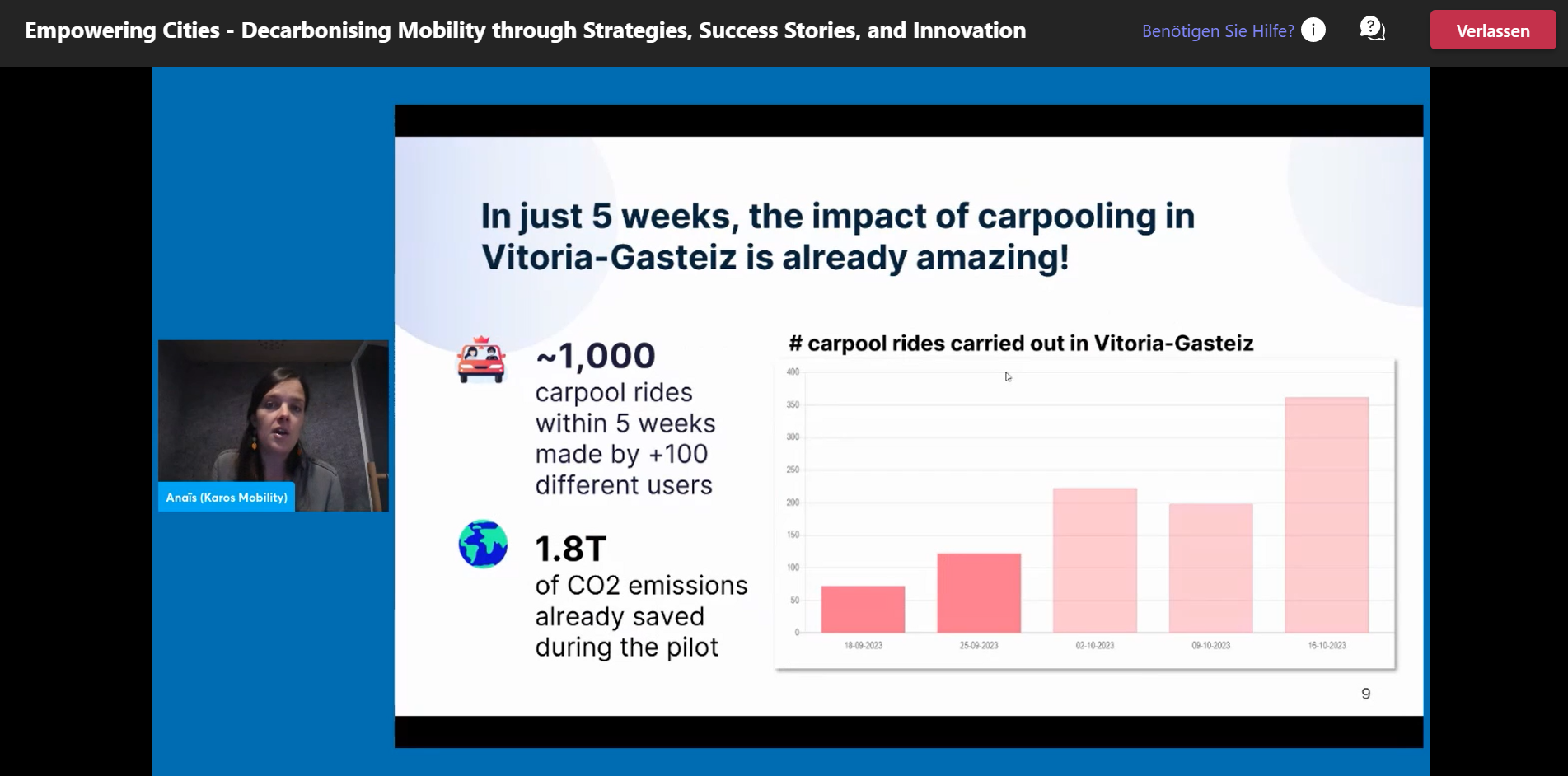
Riccardo Meo Evoli presented Pin Bike, an innovative platform promoting sustainable mobility. This dynamic system rewards users for choosing eco-friendly transportation methods. With state-of-the-art technology, it ensures secure transactions and prevents fraud. Accessible via an app, users can track their journeys, participate in challenges, and foster a sense of community. Additionally, Pin Bike facilitates real-time updates on infrastructure through seamless communication with municipal authorities. Supporting bicycles, scooters, and carpooling, the platform's versatility ensures scalability and a broad user base. The initiative also includes installing beacons on buses to further encourage usage and aggregates data for comprehensive insights.
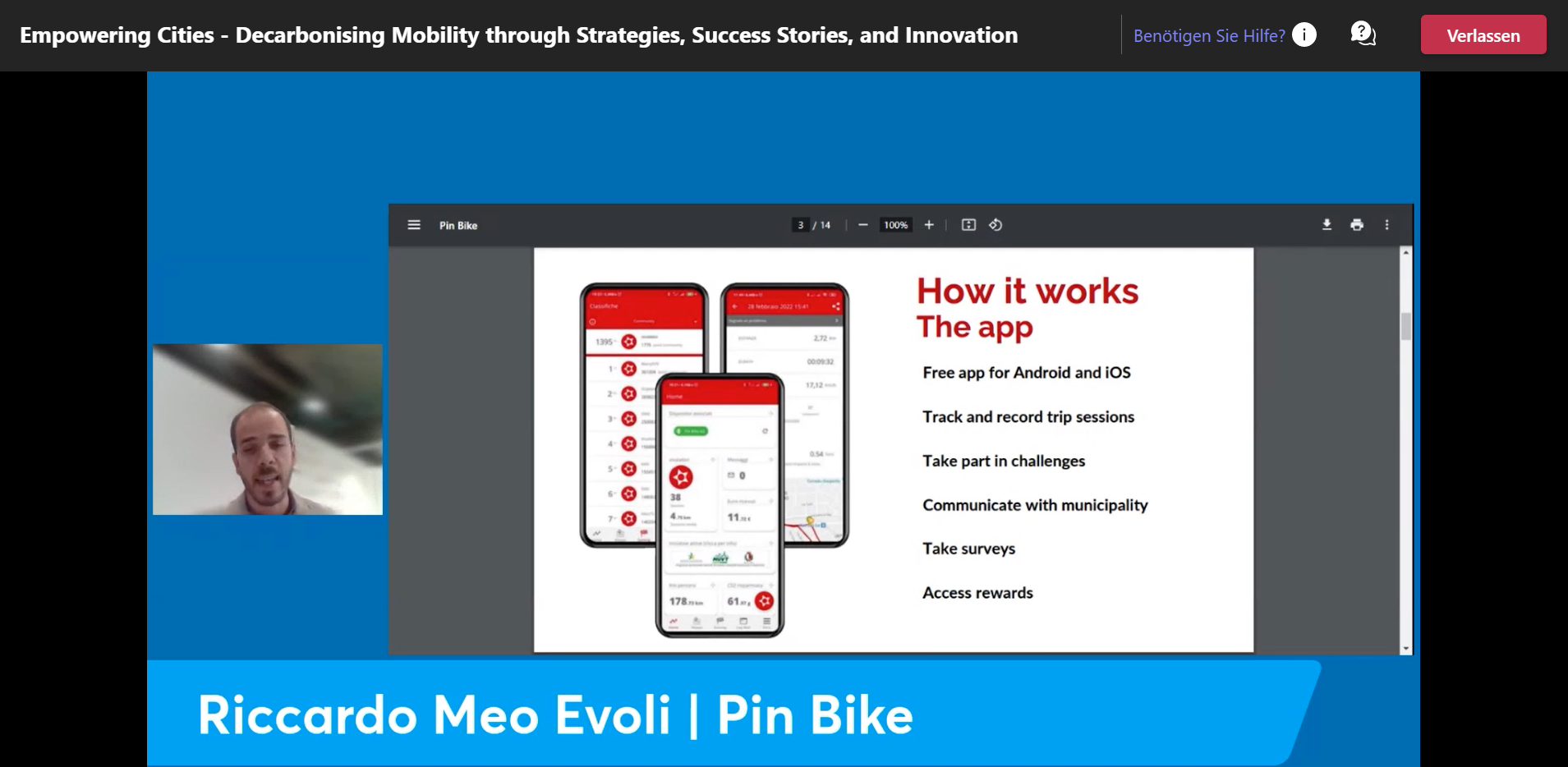
The webinar provided valuable insights into the diverse strategies and innovations that play a pivotal role in decarbonising urban mobility, laying a strong foundation for future sustainable practices.
